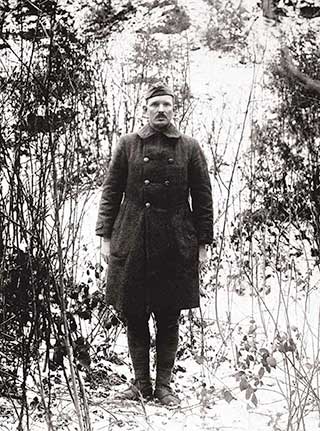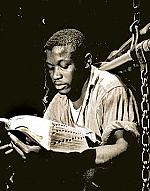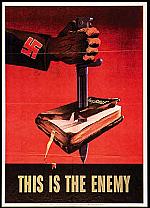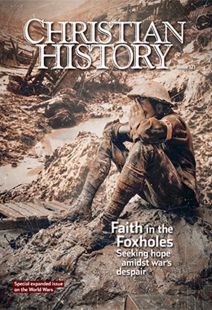Alvin York

[York revisits the Argonne area—Wikimedia]
During World War I, an American battalion moved through the wooded terrain of Argonne in northeast France. Charged with capturing the Decauville Railroad from the Germans, they attempted to cross a valley north of Chatel-Chéhéry on October 8, 1918, but were pinned down by German machine-gun fire.
Seventeen men under the command of Sergeant Bernard Early were assigned to take out the machine guns positioned on a nearby hill. One of those 17 was Corporal Alvin York.
Born on December 13, 1887, in Pall Mall, Tennessee, Alvin Cullum York was the third of 11 children. His mother belonged to a church that promoted Christian pacifism, and though he was reportedly fond of drinking and a good scrap, he often attended church.
When York registered for the draft at the start of World War I, he allegedly requested an exemption as a conscientious objector. His request was denied. (He later denied registering as a conscientious objector, and his refusal to sign papers provided by his pastor that would have made his case stronger seems to support his denial.) Eventually he came around to a reading of the Bible that justified his participation in the war. In a diary published after the war, York wrote of his experience in the Ardennes:
God would never be cruel enough to create a cyclone as terrible as that Argonne battle. Only man would ever think of doing an awful thing like that. It looked like [what] “the abomination of desolation” must look like . . . .
And, oh my, we had to pass the wounded. And some of them were on stretchers going back to the dressing stations, and some of them were lying around, moaning and twitching. And the dead were all along the road. And it was wet and cold. And it all made me think of the Bible and the story of the Anti-Christ and Armageddon. And I’m telling you the little log cabin in Wolf Valley in old Tennessee seemed a long long way off.
Thirty against one
After working their way behind the Germans, York and his companions captured the unit’s headquarters. That success was cut short when machine-gun fire erupted from a nearby ridge, killing six Americans and wounding three others. This left York as the highest ranking soldier of the group.
The skirmish that followed has become the stuff of legend. Caught off guard York didn’t have time to seek cover: “As soon as the machine guns opened fire on me, I began to exchange shots with them. There were over thirty of them in continuous action, and all I could do was touch the Germans off just as fast as I could.”
At one point, six enemy soldiers leaped from a trench and charged York with their bayonets. With no rounds left in his rifle, he shot each of them with his pistol before they could reach him.
During the melee the German commander, First Lieutenant Paul Jürgen Vollmer, emptied his pistol at York. Every shot missed. He eventually surrendered, and York and his seven men returned to the American lines with 132 German prisoners.
The victory itself was relatively small amid the colossal events of World War I, but the story of York took on a life of its own. York was soon promoted to sergeant. Later he received the Medal of Honor and became a bona fide American hero.
In 1941 Gary Cooper played York in the patriotic film Sergeant York, which appeared in theaters just months before the Japanese attack on Pearl Harbor. But after the war, York rarely spoke of his battlefield experience, preferring rather to promote both Christian education and vocational education in rural Tennessee. He died on September 2, 1964, in Nashville at the age of 76. His farm is now the Sgt. Alvin C. York State Historic Park.
This article is from Christian History magazine #121 Faith in the Foxholes. Read it in context here!
By Matt Forster
[Christian History originally published this article in Christian History Issue #121 in 2017]
Matt Forster is a freelance writer from Clarkston, Michigan.Next articles
Christian History timeline: World Wars
In the space of just over three decades, large portions of the world were plunged into life-changing conflict
Dietrich Bonhoeffer sees the handwriting on the wall
Grace is costly because it was costly to God
Dietrich BonhoefferSupport us
Christian History Institute (CHI) is a non-profit Pennsylvania corporation founded in 1982. Your donations support the continuation of this ministry
Donate





